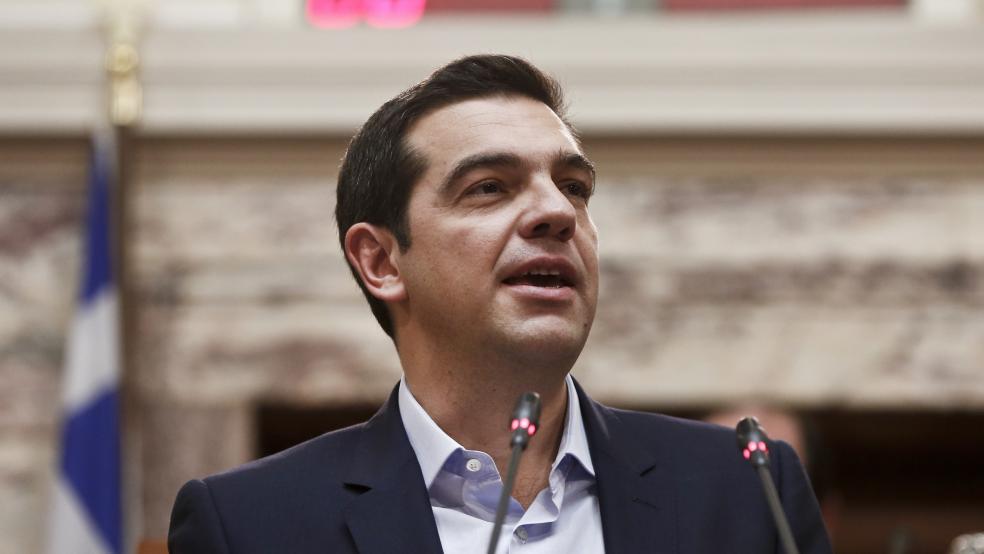The situation in Greece is confused at the moment to say the least, with the new government asserting that it will not back down in negotiations with its creditors even as anonymous public officials leak stories to the media saying that the government is prepared to do just that.
Declaring that his country would not “succumb to psychological blackmail,” Greek Prime Minister Alexis Tsipras on Tuesday called for a vote in parliament that would end various austerity measures forced on Athens as part of a pair of bailout packages assembled by other European nations.
Related: Greece Rejects Extension of Current Terms of Bailout
The move can only be seen as a direct challenge to the Finance Ministers of a number of other European countries, particularly Germany, who have been negotiating with Greece over the terms under which it receives financial assistance from the rest of the Eurozone. While Greece has demanded the ability to ease the austerity programs, which have helped drive down wages and have kept unemployment high for the past five years, the Finance Ministers, known collectively as the Eurogroup, have shown little inclination to bend.
However, on Tuesday afternoon, citing an unnamed official with knowledge of the situation, the Wall Street Journal reported that on Wednesday, Greece would seek an extension of its current loan arrangement – something completely in opposition to the government’s previous statements.
While the situation is unclear, the weight of the evidence still appears to be on the side of Greece continuing to demand concessions.
Tsipras’ governing Syriza party was elected on a promise to end austerity programs, and the Greek Finance Minister, Yanis Varoufakis, has repeatedly told his counterparts that Greece is not interested in an extension of the current program. He said that Greece is asking for a short-term loan, without austerity requirements, that will allow the country the breathing room necessary to negotiate a longer-term aid package that satisfies both northern European creditors and a Greek public battered by a half decade of economic privation.
Related: The Problem with Greece Is That It Isn’t Just Greece
An extension of the current program is impossible, Varoufakis reiterated Tuesday. “There is no Plan B.”
The Greek position received little sympathy from German Finance Minister Wolfgang Schaeuble, who has appeared open to the possibility that Greece might be forced out of the European Monetary Union altogether, saying that if the current program, which expires at the end of the month, is not renewed, “it’s over.”
Schaeuble told reporters Tuesday, “The crucial question is and remains that Greece has to decide: does it really want this program or doesn’t it? None of my colleagues have understood so far what Greece really wants in the end. Whether Greece itself knows is also the question.”
The consensus among market watchers Tuesday afternoon appeared to be that the possibility of Greece leaving the Euro was markedly higher than it had been just a day before. On Tuesday afternoon, the Irish bookmaking company Paddy Power was offering 10/11 odds in favor of Greece adopting an official currency other than the Euro, meaning bettors now see that outcome as slightly more probable than Greece remaining in the Euro.
Top Reads from The Fiscal Times





